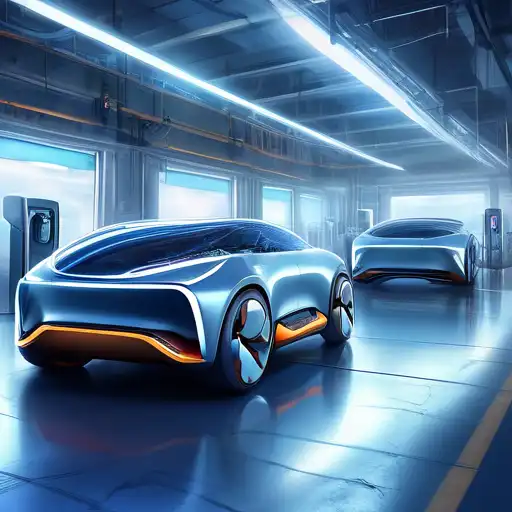Introduction to Electric Vehicles and Automotive Technology Advances
The automotive industry is undergoing a significant transformation, driven by the rise of electric vehicles (EVs) and groundbreaking technological advancements. This shift not only represents a leap towards sustainable transport but also introduces a new era of innovation in automotive technology. In this article, we explore the latest developments in EVs and how they're reshaping the future of mobility.
The Surge of Electric Vehicles
Electric vehicles have moved from niche to mainstream, thanks to advancements in battery technology, increased environmental awareness, and supportive government policies. Companies like Tesla, Nissan, and Chevrolet are leading the charge, offering models that combine performance with sustainability. The global push towards reducing carbon emissions has further accelerated the adoption of EVs, making them a key player in the automotive market.
Technological Innovations Driving the Change
Behind the rise of electric vehicles are several technological innovations. Battery technology, for instance, has seen remarkable improvements, with lithium-ion batteries offering longer ranges and faster charging times. Additionally, regenerative braking systems and energy-efficient designs are enhancing the appeal of EVs. Beyond the vehicles themselves, infrastructure developments, such as the expansion of charging stations, are making electric vehicles more accessible to the public.
Autonomous and Connected Vehicles
Another exciting frontier in automotive technology is the development of autonomous and connected vehicles. These innovations promise to revolutionize how we commute, offering increased safety, efficiency, and convenience. Features like self-parking, adaptive cruise control, and vehicle-to-vehicle communication are just the beginning. As these technologies mature, we can expect to see fully autonomous vehicles becoming a common sight on our roads.
The Role of AI and Machine Learning
Artificial intelligence (AI) and machine learning are playing pivotal roles in advancing automotive technology. From optimizing battery performance in EVs to enabling sophisticated driver-assistance systems, AI is at the heart of many modern automotive innovations. These technologies not only improve vehicle efficiency and safety but also pave the way for personalized driving experiences.
Challenges and Opportunities
Despite the progress, the transition to electric vehicles and the adoption of new automotive technologies face challenges. Issues such as battery disposal, the need for widespread charging infrastructure, and the high cost of some technologies remain hurdles. However, these challenges also present opportunities for innovation and collaboration across industries to create sustainable and efficient mobility solutions.
Looking Ahead
The future of electric vehicles and automotive technology is bright, with continuous advancements promising to make transport more sustainable, efficient, and enjoyable. As we move forward, the integration of EVs with renewable energy sources, the evolution of autonomous driving, and the application of AI will further transform the automotive landscape. The journey towards a greener, smarter future on the roads is well underway.
For more insights into the future of mobility, check out our articles on sustainable transport and AI in the automotive industry.
